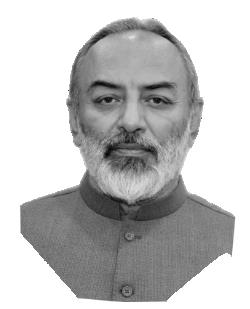
In keeping with expectations, NATO last week reaffirmed support for its mission to ensure long-term security and stability in Afghanistan.
At about the same time, the deteriorating security situation in Afghanistan was highlighted by a series of Taliban attacks, in which about 40 Afghan security personnel were reportedly killed. The attacks, mostly in the northern Kunduz province, were coordinated and lethal. The focus of the attacks was Dasht-i-Archi district, where airstrikes by the Afghan Air Force on a madrasa during a graduation ceremony in early April killed scores of civilians, including children. At the time, the Taliban had pledged to avenge the losses.
At NATO’s Brussels summit, which was also attended by Afghan President Ashraf Ghani, the organization’s leaders pledged strong support for the Afghan government’s peace proposals. The good news for Ghani’s national unity government was that the NATO leaders extended its financing for Afghan security forces until 2024 and decided to sustain a military presence in Afghanistan until conditions become appropriate for a change in policy.
As the NATO summit also decided to fill staffing shortfalls, especially in priority areas, member countries were expected to contribute troops and resources to the Resolute Support Mission. The United Kingdom had already announced it would nearly double the number of its troops in Afghanistan to about 1,100. Secretary General Jens Stoltenberg had earlier claimed that NATO allies and partners were not just maintaining their contributions to the mission, but were increasing them. However, the fact remains that NATO member states have been reluctant to increase their military presence in Afghanistan due to the declining support in Western countries for the Afghan war. US President Donald Trump’s demand that his NATO allies should increase their military spending has put member countries under pressure and could lead to fissures in the alliance.
The Afghan conflict is already the longest war in US history and there is no indication as to when it will end. The US, with more than 14,000 troops, is the largest contributor to the nearly 16,000-strong force drawn from NATO members and partner states. Though the mission’s combat role has officially ended and it is now required to primarily focus on training Afghan security forces, US troops are still sometimes drawn into battle in support of Afghan troops, who are struggling to contain the Taliban insurgency and the growing threat posed by Daesh.
It is obvious there is still no consensus among regional and global powers about how to peacefully bring the long Afghanistan conflict to an end.
Rahimullah Yusufzai
Stoltenberg and other officials have claimed that the Afghan forces have made real progress in conducting offensive operations and defending the country, but they aren’t always convincing. US military officials have said on record that the high level of casualties being suffered by the Afghan forces is not sustainable in the long term. Ghani also warned that the Afghan army would collapse in six months without US assistance.
As there is near consensus among all sides involved in the Afghan conflict that there can be no military solution to end the war, the focus has been gradually shifting toward re-energizing the stalled peace process. Hopes for peace were raised when the Taliban announced a three-day cease-fire during the Eid Al-Fitr holidays last month, but it wasn’t extended and was followed by a hike in attacks in many parts of Afghanistan. Rather reluctantly, Ghani had to end his unilateral cease-fire, though he has continued to offer peace talks to the Taliban anywhere and at any time.
The role of Pakistan and other countries neighboring Afghanistan is considered important in the context of ending the Afghan war. In their Brussels meeting, the NATO leaders recognized this by asking Pakistan, Iran and Russia to contribute to regional stability by fully supporting an Afghan-led and Afghan-owned peace process. These countries were mentioned by name in view of the feeling among NATO members that they have been fomenting instability in Afghanistan. China wasn’t mentioned even though it is also Afghanistan’s neighbor because it hasn’t been accused of interfering in Afghan affairs.
While Pakistan, Iran and Russia have denied the accusations, it is obvious there is still no consensus among regional and global powers about how to peacefully bring the long Afghan conflict to an end.
— Rahimullah Yusufzai is senior political and security analyst of Pakistan. He was the first to interview Taliban founder Mullah Mohammad Omar and twice interviewed Osama Bin Laden in 1998. Twitter: @rahimyusufzai1
Disclaimer: Views expressed by writers in this section are their own and do not necessarily reflect Arab News" point-of-view












